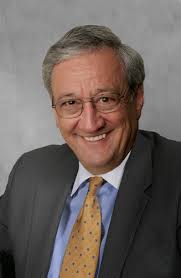
In light of the recent attack in Charleston, SC, there has been a great deal of conversation about the cultivation of racial hatred that led to the massacre where nine people lost their lives. In his article "No One Is Exempt From the Responsibility to Combat Hate," excerpted below, Rev. Dr. C. Welton Gaddy, the former Executive Director of the Interfaith Alliance, explains his understanding of hate cultivation as seen through the lens of religion. Read the full article here.
By Rev. Dr. C. Welton Gaddy
You and I have a role to play if we are serious about stopping hate crimes. In our respective communities, we can do what neither Congress nor the President can do for us. Ours is the responsibility of commending others and modeling in our own lives respect for those who are different from us, focusing on similarities that bind us together, and denouncing hate as neither a democratic nor a religious value.
As a religious leader, I have seen both the positive and healing role that faith can play in people's lives as well as the destructive consequences of people using religion as an excuse for or a tool of hatred. Sadly, some who claim the mantle of God prostitute that sacred trust by inspiring anger toward those who are different from themselves and, through hate-filled oratory, disseminate venomous rhetoric that drives sick minds to engagement in violent actions.
I am not asking anyone to turn away from deeply held religious convictions. However, there is a tremendous difference between standing by your values and inciting hatred or inspiring violence. Mark it down: Any religion that justifies hate toward any other person is an impostor of religion. Diverse religions speak with one voice in opposing hate and hate-motivated violence.
In years of work on this issue, I have seen the proof of an observation of the British statesman Edmund Burke, who once said, "All that is necessary for the triumph of evil is for good [people] to do nothing." This is no time for passive spectators. Hate must be challenged and defeated. As a person of faith, but more importantly as a human being, I solicit your help in countering and ultimately eliminating hate from our society. "Impossible," you say. "Have we every really tried?" I must ask.
Add new comment